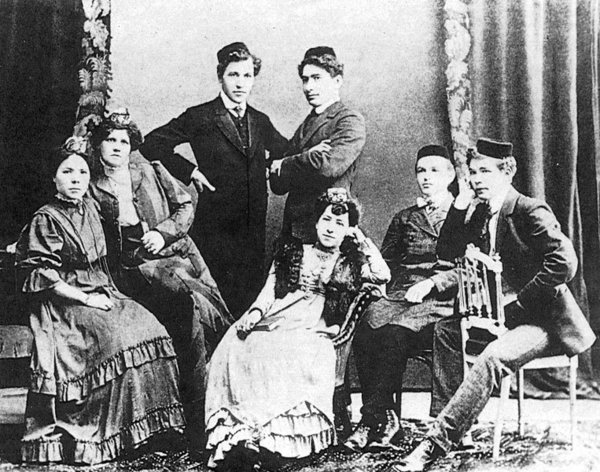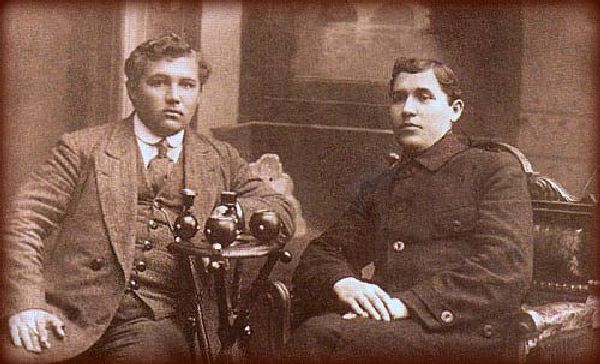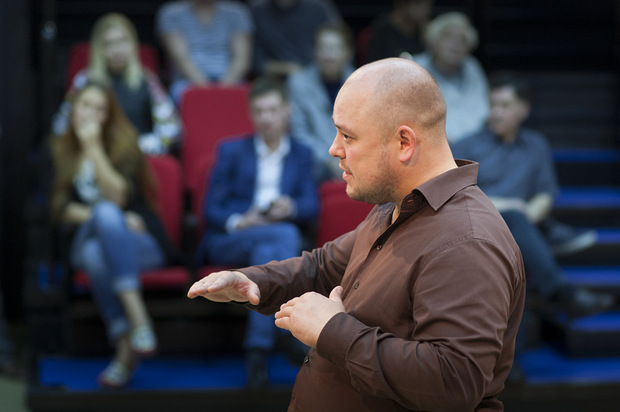Niyaz Iglamov: ''Tatar theatre was created not by ''simple guys''
On 22 December, the Galiaskar Kamal Tatar Academic Theatre celebrates its 110th anniversary. This year it has been decided to celebrate not just the birthday of Kamal Theatre but also the birthday of professional Tatar theatre arts. About the history and preservation of traditions of the Kamal Theatre — in an interview of Realnoe Vremya with the head of the literary part of the Kamal Theatre Niyaz Iglamov.
''The first Tatar play was a melodrama''
Mr Iglamov, what was the soil where the first Tatar theatre arts sprouted?
There are two layers that gave rise to the emergence of professional theatre arts. One of them — ritual, folk, associated with rural holidays, Sabantuy. But, oddly enough, not this layer triggered. The folklore layer was widely used by Karim Tinchurin in the 1920s. Before the origin of the theatre, for nearly twenty years there had been the preparatory stage. The first Tatar play was written and published in 1887. It was a small piece, something like melodrama. A girl is forced to marry a rich man, she has an educated groom, and so on. The author is Gabdrakhman Ilyasi.
Where was the play published?
It was published legally in the printing house of the Kazan University, like it was customary at that time, with a title page in Russian language, with a title leaf and contents in the Arabic script. The text was censored, the second edition was published a year after — this piece entered into polemics with An Unhappy Girl. A few years later, the play by Galiaskar Kamal, A poor young man, the first dramatic work of Gayaz Iskhaki appeared.
Are these plays staged?
Although these plays are for reading, but they are. For example, An Unhappy Girl is staged in the house of Ilyasi by his relatives, it is a home show. On the one hand, in the House of Tatar Intellectuals they stage home performances, on the other hand, the performances of these plays are staged in jadid madrasahs. There were few plays, but ten plays in ten years is a tendency. In the early 20th century, plays become more. Arabic Graphics brings together the languages. For example, during this period there is no such large discrepancy between the Tatar and Azerbaijani languages. For example, in 1908, the Sayar troupe along with a troupe of Azerbaijani enlightener Arablinsky made a joint tour. It was a partnership on equal footing.

''The first play was staged in the building of a merchant club''
And 22 December 1906 comes...
The first performance for money was the raising funds in favour of poor shakirds. In the evening there are two performances, permission from the Governor General on the public view was obtained. The first performance was staged in the current premises on Gorky Street, where for a long time there was the Institute of traumatology. It was a merchants' club. The hall was for 200-300 seats, for the first performance it was ok. Out of all these enthusiasts the only one left on this side of the ramp, it was Fatikh Amirkhan, he wrote several plays, he was an active promoter of theatre arts. It is possible to speak of him as the first theatrical critic.
What happened next?
In several months, they organised a troupe – association of Tatar strolling actors. Tukay made up the name – Sayar, stroller. For the first five years, they were constantly travelling.
Tours?
No, it was way of life. They were like goliards. One cannot say that the goliands went on tours, it was their way of life. In 1912-1913, the benefactors gave the troupe Sayar a premise. Now it is the house on Tatarstan Street, 20. That time it was Yevangelistov Street. They played in the Sharyk club until 1915. They would played more if not the War, and the premise was transformed in a hospital. Then the troupe moved in the building of the current Russian youth theatre. There are a lot of Sayar places in Kazan.

How popular they were?
I think they were very popular. While strolling, Gayar had an easy repertoire of one-act plays, vaudevilles. As soon as they moved into the building, the hospital, the repertoire became different. They staged drama of ideas, plays inclined to symbolism. These were people of enormous culture. It's not rustic, primitive culture, it is not homespun and homespun works. People who studied in madrassas, had a seminary education, he was a man of high culture. As a seminarian knew Latin and Greek, so the shakirds knew Arabic and Persian. In madrasahs, along with the new method of teaching they started to teach German and French. It was not guys from the street, not simple guys, they were students of theological institutions. Gabdulla Kariev, for example, knew the whole Koran, imagine how many there are surahs!
''Succession is seen through the actors''
What has left from the theatre of the time in the current Kamal theatre?
Succession of the Tatar theatre has always been through the actors. Acting generations joined the theatre in different ways: some were lucky, some were not. For example, the graduates of the Russian University of Theatre Arts in 1949 were not lucky. Imagine, in 1949, high noon of the theory of absence of conflict, the case of doctors, the paranoia of Stalin, the anti-Jewish campaign. Vavilov, for example, suffered not because of genetics, and for the freedom of thought. And it was the time when the group of people who studied from direct disciples of Stanislavsky — Bibikova and Pyzhova such grandchildren of Stanislavsky came to the city, came in the theatre. They come to the theater, where homegrown directors reign, and they are less educated than the graduated of the Russian Theatre of Theatre Arts. There were nothing to stage, playwrights were repressed, and those who remained were writing in the new conflict-free manner. But it was not interesting. People stopped going to the theatre. Never before there were so few Tatar drama in the theatre as in the 1940-1950s. There was some rubbish — Surkov, Safonov. But the graduates of 1961 who graduated from the studio at the Kachalov theatre were lucky, they fell into the stream. They are children of the Thaw, the children of the 20th Congress.

''Succession, it has always been through actors. Through fellowship, through the nurturing of young people. There were two cases of other relationships, but, in principle, everything was democratic.'' Photo: minkultrb.ru
The country already had the other mentality.
That time, the new drama comes, many playwrights are rehabilitated. What you have asked about the succession, it has always been through actors. Through fellowship, through the nurturing of young people. There were two cases of other relationships, but, in principle, everything was democratic. The remember, for instance, how Galia Bulatova, a great actress, how she gave her role to a young actress, how she entered her. How Shaukat Biktemirov helped young actors on stage. We have a climate of backstage, it is special, I can't say that there have never been conflicts, and but that's life it is. But the troupe never divided, there were no serious conflicts. Kamal Theatre always tries to take care of the youth, and this is the main thing that has been preserved.